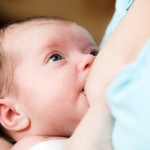
The WHO guidelines currently recommend exclusive breastfeeding for the first 6 months with complimentary breastfeeding up to 2 years of age. A number of studies and reviews have looked at the relationship between breastfeeding and dental caries with conflicting findings. The aim of this review was to summarise the current evidence for the association between breastfeeding and dental caries with specific reference to exposure windows and breastfeeding practices.
Methods
Searches were conducted in the PubMed Central, CINAHL and Embase databases. Observational and experimental studies were considered. Two reviewers independently selected studies and assessed study quality using the Newcastle- Ottawa Scale (NOS)
Exposure to breastfeeding in two specific time windows was considered: (i) Up to 12 months of age (upper and lower incisors present) and (ii) Beyond 12 months of age (other teeth erupting up to 33 months-increased risk of caries). Studies were also categorised into i) Never breastfed compared to any breastfeeding and (ii) More versus less breastfeeding.
Meta-analysis was performed if there were three or more studies in each time window and category of breastfeeding
Results
- 63 studies were included. These consisted of 6 cohort studies nested within RCTs of breastfeeding promotion interventions. 8 cohort studies, 3 case-controlled studies and 46 cross-sectional studies.
- 46 studies were not included in meta-analysis due to methodological differences in the measures of exposure and outcomes, or reporting of correlational analyses only. A narrative synthesis was presented.
- Meta-analysis demonstrated: –
- Children exposed to longer versus shorter duration of breastfeeding up to age 12 months (more versus less breastfeeding), had a reduced risk of caries, OR = 0.50 (95%CI; 0.25 – 0.99, I2 86.8%) 5 studies.
- Children breastfed >12 months had an increased risk of caries when compared with children breastfed <12 months, OR -1.99 (95%CI; 1.35 – 2.95, I2 69.3%) 7 studies.
- Amongst children breastfed >12 months, those fed nocturnally or more frequently had a further increased caries risk, OR = 7.14; (95%CI; 3.14 -16.23, I2 77.1%) 5 studies.
- There was a lack of studies on children aged >12 months simultaneously assessing caries risk in breastfed, bottle-fed and children not bottle or breastfed, alongside specific breastfeeding practices, consuming sweet drinks and foods, and oral hygiene practices limiting our ability to tease out the risks attributable to each.
Conclusions
The authors concluded:
Breastfeeding up to 12 months of age is not associated with an increased risk of dental caries and in fact may offer some protection compared with formula. However, children breastfed beyond 12 months, a time during which all deciduous teeth erupt, had an increased risk of dental caries. This may be due to other factors which are linked with prolonged breastfeeding including nocturnal feeding during sleep, cariogenic foods/drinks in the diet, or inadequate oral hygiene practices. Further research with careful control of pertinent confounding factors is needed to elucidate this issue and better inform infant feeding guidelines.
Comments
This review has conducted a wide search for studies and although a large number of studies were identified (63) the vast majority (73%) were cross-sectional in nature. The authors’ quality assessment of the included studies also highlights problems with some of the included cohort studies because of the way in which infant feeding practices were collected, issues with recruitment and issues with baseline caries assessment. In addition, only a small number of studies took account of key confounders such a dietary sugars, oral hygiene etc.
This review does suggest that breastfeeding up to the age of 12 months of age has a protective effect on dental caries. But an increased risk for those breastfeeding after 12 months particularly with nocturnal feeding. The limited number of high quality studies available mean that these findings should be interpreted with caution.
However, given the well documented benefits of breast feeding (in the levels of oxytocin resulting in less postpartum bleeding, accelerated weight loss and return to pre-pregnancy body weight, and reduced risk of ovarian and breast cancer) and as the primary teeth do not erupt until around 6 month of age, dental professionals should support the WHO recommendations for breastfeed, and stress the importance of good oral hygiene from the eruption of the first along with appropriate dietary advice.
A Cochrane review of ‘Breastfeeding for oral health in preschool children’ (Arrora et al ) is currently underway.
Links
Primary paper
Tham R, Bowatte G, Dharmage SC, Tan DJ, Lau M, Dai X, Allen KJ, Lodge CJ. Breastfeeding and the risk of dental caries: a systematic review and meta-analysis. Acta Paediatr Suppl. 2015 Dec;104(467):62-84. doi: 10.1111/apa.13118. Review. PubMed PMID: 26206663.
Other references
Arora A, Foster JP, Gillies D, Moxey AJ, Moody G, Curtis B. Breastfeeding for oral health in preschool children (Protocol). Cochrane Database of Systematic Reviews 2013, Issue 3. Art. No.: CD010416. DOI: 10.1002/14651858.CD010416.

Breastfeeding and caries risk https://t.co/yeNy7mNQd1
Breastfeeding up to 12 months of age not associated with increased risk of dental caries https://t.co/yeNy7mNQd1
MT:Facts for talking with patients about Breastfeeding and caries risk https://t.co/mvfQpubtCl via @sharethis #Dentists going #Beyond32Teeth
Children exposed to more vs less breastfeeding up to 12 months had reduced risk of caries https://t.co/yeNy7mNQd1
Reduced risk of caries, OR = 0.50 (95%CI; 0.25 – 0.99) in children breastfed up to age 12 months https://t.co/yeNy7mNQd1
Don’t miss – breastfeeding and caries risk https://t.co/yeNy7mNQd1
[…] Breastfeeding and caries risk […]